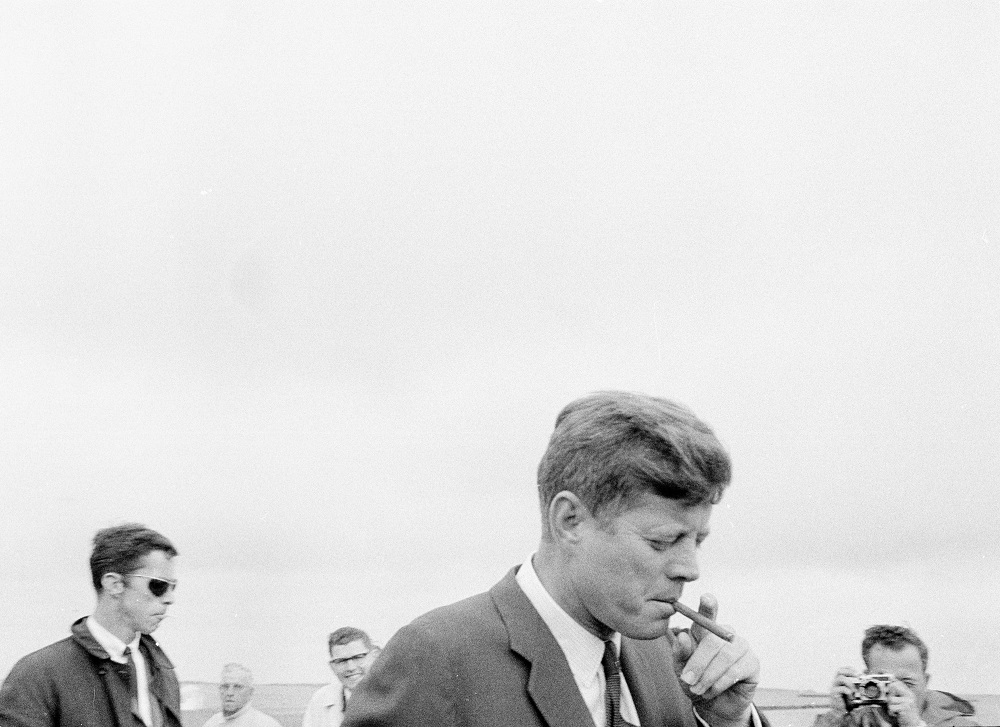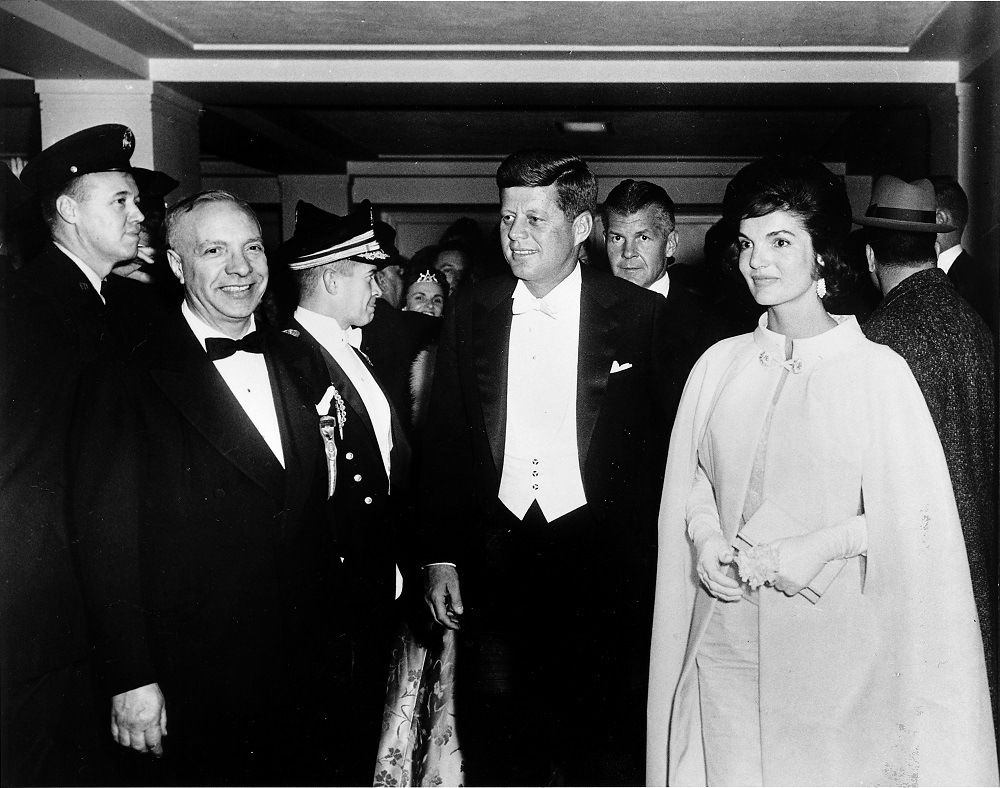Did you know about the hidden struggles of JFK? The former president had various illnesses that were not well known to many…
John F. Kennedy is remembered as a charismatic, youthful president who inspired a generation. But behind the bright smile and energetic speeches was a man quietly battling a series of debilitating illnesses. His health struggles were kept secret from the public during his lifetime, painting a very different picture from the healthy image presented by the media.
In truth, JFK lived with constant pain and relied on a cocktail of medications to function daily. This article examines the hidden medical history of John F. Kennedy — a facet of his life rarely discussed, yet crucial to understanding the man behind the legacy.
The hidden struggles of JFK weren’t just psychological or political; they were intensely physical. Behind closed doors, Kennedy was fighting a relentless battle with chronic pain, hormonal imbalances, and a rare condition that nearly destroyed him long before his presidency began.

Early signs of a lifelong illness
JFK’s health issues began early. As a child, he suffered from frequent illnesses, gastrointestinal problems, and unexplained fevers. His prep school years were marked by extended absences due to sickness. At the time, doctors failed to connect these recurring problems to a broader, more insidious condition.
It wasn’t until his early twenties that things took a dire turn. While serving in the Navy during World War II, Kennedy’s back problems intensified, and his gastrointestinal symptoms became more severe.
He was later diagnosed with Addison’s disease, a disorder in which the adrenal glands fail to produce enough cortisol, a hormone essential for energy, stress regulation, and immune function. But even that diagnosis was cloaked in secrecy and confusion.
Kennedy’s disease: the truth behind it
While many today associate the term “Kennedy’s disease” with a genetic neuromuscular disorder that causes progressive muscle weakness (spinal and bulbar muscular atrophy), that was not the condition JFK had.
However, because of the striking coincidence between his name and his neurological symptoms, confusion has lingered in the public imagination.
Instead, the “Kennedy’s disease” JFK lived with was Addison’s disease, which is an autoimmune condition. What made it worse was that, in Kennedy’s case, it was often complicated by other overlapping disorders—colitis, osteoporosis, chronic back pain, and multiple surgeries gone wrong.
This tangled web of health crises made JFK a walking paradox: young and glamorous on the outside, aging and failing on the inside.
The hidden struggles of JFK weren’t just one disease—they were a constellation of problems that would have sidelined most people from a normal life, let alone a high-stress presidency.
The Addison’s disease cover-up
JFK’s Addison’s diagnosis came in the 1940s when treatments were rudimentary. Left untreated, Addison’s is fatal. Thanks to the discovery of cortisone and other steroids, Kennedy’s life was saved—but at a cost. Long-term steroid use led to brittle bones and weakened muscles, further aggravating his chronic back pain.
The Kennedy family went to great lengths to keep his condition secret, fearing it would disqualify him from political office. During his 1960 presidential campaign, questions about his health emerged. His team flatly denied he had Addison’s disease, claiming he suffered only from the after-effects of war injuries.
Medical records were concealed. Doctors who had treated him were pressured into silence. To the American public, JFK was a picture of vitality—tanned, youthful, and strong. In truth, he was taking a dangerous cocktail of drugs every day just to function.
Daily life on medication
In order to carry out his duties, JFK relied on a rotating combination of medications that would shock most modern physicians. These included: Cortisone and prednisone: to manage Addison’s disease, Painkillers: including codeine and Demerol for chronic back pain, Amphetamines: to boost his energy and mood, Anti-anxiety drugs: for stress and insomnia, and Antibiotics: to fend off frequent infections.
At times, JFK was taking over a dozen different medications daily. One of his physicians, Dr. Max Jacobson—nicknamed “Dr. Feelgood”—administered amphetamine-laced injections that temporarily energized JFK but posed serious health risks.
Despite these drugs, JFK often struggled to walk, wore a stiff back brace, and endured excruciating pain during public appearances. The strength it took to maintain his polished image was nothing short of heroic.
Surgery gone wrong
In 1954, after being elected to the Senate, Kennedy underwent spinal surgery to relieve his back pain. The operation was a disaster. He developed a high fever, his incision became infected, and he lapsed into a coma. At one point, a priest administered the last rites.
It took months for Kennedy to recover, and the surgery did little to alleviate the pain. It likely made it worse. Yet through it all, he never gave up his political ambitions. His resilience bordered on obsession. He wanted to serve, to lead, and to inspire—regardless of what his body told him.
The public image vs. the private harsh reality
JFK’s ability to project youth and strength was central to his political appeal. In the first-ever televised presidential debates, he appeared calm, confident, and commanding—especially when contrasted with Richard Nixon, who looked pale and sweaty.
But viewers had no idea that JFK had been propped up with medications before going on camera. Behind the confident smiles and compelling speeches were the hidden struggles of JFK—waves of fatigue, pain, and anxiety that never made it to the headlines.
Even his famous trip to Berlin in 1963, where he declared “Ich bin ein Berliner,” was marked by days of physical exhaustion and intense back pain. Still, he performed.
The toll on his presidency
There’s a haunting irony in the fact that JFK’s health might have shaped more of his decisions than we realize. Some historians argue that the medications he took—particularly the amphetamines—may have influenced his mood, decision-making, and even his volatile relationship with advisers.
On the other hand, his chronic pain may have sharpened his empathy. He was known to be deeply concerned about poverty, injustice, and suffering. Perhaps Kennedy’s disease gave him a unique insight into the human condition—pain as a unifying, humbling experience.

Legacy and revelation
It wasn’t until decades after JFK’s assassination that the public began to learn the full truth. In 2002, the Journal of the American Medical Association published an analysis of Kennedy’s secret medical records, revealing the depth of his illnesses and the extensive list of medications he relied upon.
These revelations shocked many but also gave a deeper understanding of who JFK really was—not just a president but a fighter.
The hidden struggles of JFK don’t detract from his achievements; they enhance them. They reveal a man who battled intense physical limitations yet remained determined to change the world. They show a leader who inspired millions while privately dealing with pain that would break most people.
A human hero
The myth of JFK as a perfect, invincible figure is long gone. But what remains is arguably more powerful: the image of a flawed, hurting, determined man who gave everything to his country. He was not just a symbol of American strength—he was a quiet, enduring symbol of human perseverance.
In revealing Kennedy’s disease and the full weight of his hidden illnesses, history has not diminished JFK. It has given us reason to admire him even more. Not for being superhuman, but for being human in the face of overwhelming odds.
Takeaway:
John F. Kennedy’s life is a testament to the complexity of leadership. Charisma, courage, and conviction are only part of the story. Behind the scenes, it was grit, resilience, and a high pain tolerance that defined much of his presidency.
As we reflect on the hidden struggles of JFK, we are reminded that greatness often comes not from what we show the world, but from what we overcome in silence.
Curious about more interesting info regarding JFK? Check out this amazing book, LIFE The Day Kennedy Died: Remembering the Man and the Moment.
Related article: 8 Tales from Dallas’s Parkland Hospital Where JFK Died.
